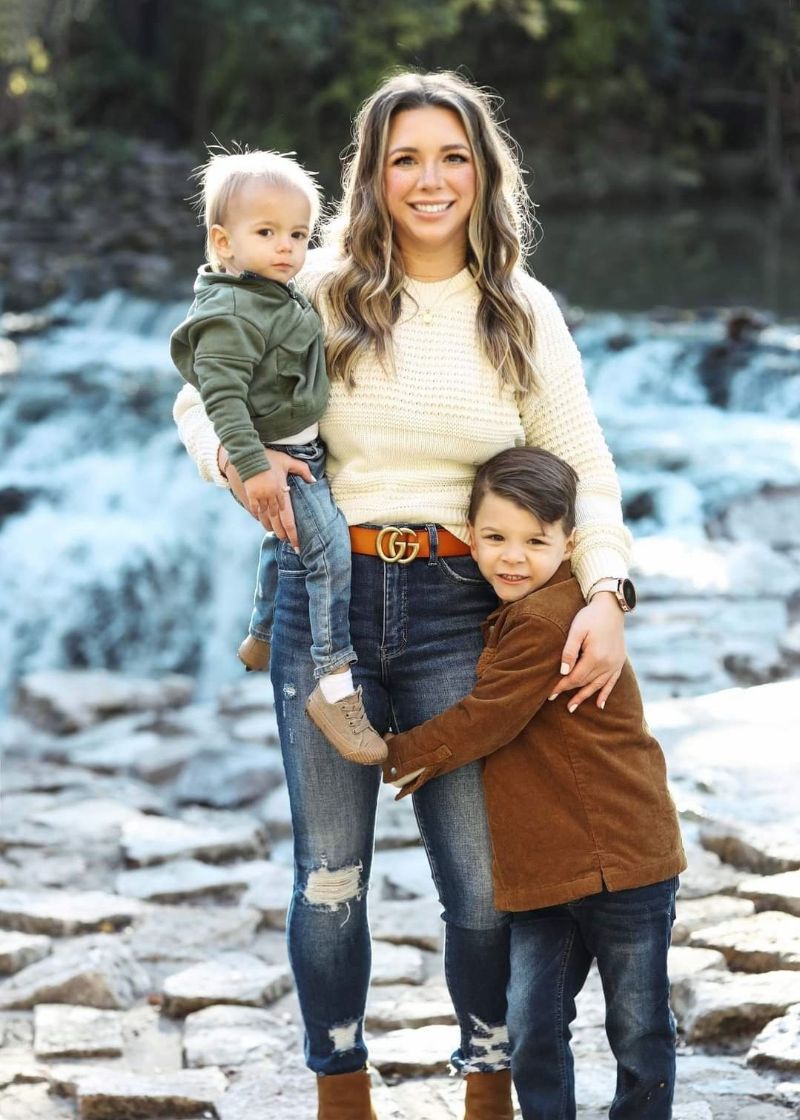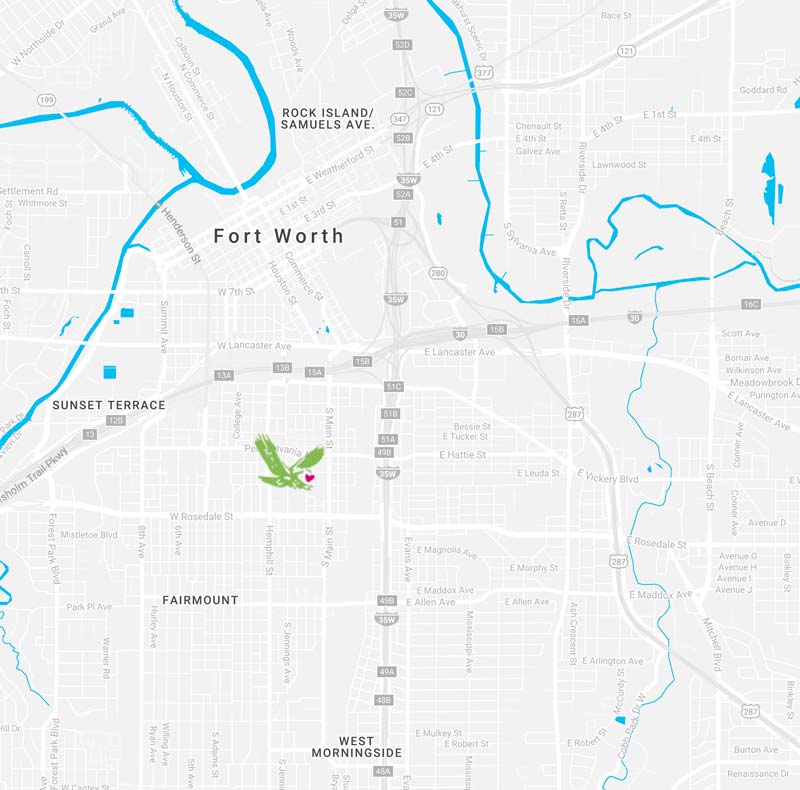Meet Sarah Leavitt
Sarah Leavitt is a child life specialist with the Visiting Nurses Association. She was born and raised in Texas, where she graduated from the University of North Texas. Sarah completed her child life practicum at Texas Scottish Rite Hospital in Dallas, TX, and her child life internship at NorthShore Evanston Hospital in Evanston, IL. She has been a child life specialist for 8 years, all of which have been in the hospice field. She and her husband have two boys, 5 and 2 years old. They love doing crafts and spending time outside, playing, as a family. She loves working with children and families and hopes to keep doing so throughout her career.

How long have you been a child life specialist? Have you always worked in hospice?
I have been a hospice child life specialist for 8 years. I started my career in the hospice field and have always found such fulfillment with working within this population.
How and why did you get involved with this work?
I started my career, right out of my internship, in the hospice field. I truly did not understand the critical role that hospice plays in the lives of families when I first started. I quickly learned how much of an impact child life specialists have on the lives of children and families who are receiving this kind of care. Throughout my career, I have enjoyed being able to assist families during such a vulnerable time in their lives.
What role does a child life specialist play in end-of-life care? How does this role differ from a social worker, a chaplain, or a nurse?
Child life specialists provide emotional support for patients and family members through preparation, education, and instruction of coping mechanisms for diagnosis and prognosis. Child life specialists also provide developmentally appropriate and therapeutic activities, legacy activities, and medical play opportunities as ways to provide developmentally appropriate support. Child life specialists wear many hats and can provide support to patients and their family members in a multitude of ways. During the end of life, child life specialists can provide education and preparation about the patient’s diagnosis and prognosis. This gives children opportunities for closure, an opportunity to clarify misconceptions and talk about worries that they may have during this challenging time. Child life specialists are also able to help create memory making opportunities through legacy activities such as handprints, hand molds, fingerprint charms, and heartbeat or voice recordings.
How do you work collaboratively with other members of the hospice team?
In hospice, every interdisciplinary team member has a significant role in helping patients and family members. We often participate in joint visits and speak regularly to figure out how we can best make an impactful difference on our patients’ families’ lives.
What does that initial visit with a family look like?
Each initial visit is tailored to the needs of each individual family. My goal as a child life specialist is to ensure that each child has had education, preparation, and emotional support to help process their feelings surrounding their unique situation. If families are open to those types of support, I will typically start my visit by introducing myself, building a rapport with the child, and then proceed with education about diagnosis, preparation for prognosis, and emotional support to help guide their feelings. We will typically establish developmentally appropriate coping skills to help manage their feelings on difficult days. I will then offer the family opportunities for memory making and legacy activities. I will often assess additional needs during this time, such as if the patient has a dream that must be granted or if the family may have any desires for additional memory making or financial assistance. This is when we explore what those possibilities could be through the help of Project 4031.
Can you share an experience that impacted you during your career?
Throughout my career as a child life specialist, the most impactful moments to witness are the ones where you can see that the support that you are providing is making a difference in a child’s life. Witnessing the progress they make throughout their grief journey and seeing families get meaningful opportunities for memory making and closure is such a blessing that truly fills my heart. I have had families reach out to me years after losing their loved one to tell me what a difference our support has made in their lives and how impactful it has been with moving forward with their “new normal” after losing their person. These moments are what keep me motivated and show that what you are doing is providing a difference for these families.
How do you define success in your role?
Success in my role as a child life specialist is leaving a visit knowing you have made a difference. Sometimes this looks like providing clarification for misconceptions that children may have surrounding a diagnosis, giving opportunities for emotional outlets, and other times it is giving them opportunities for distraction because their hearts and minds are often consumed with the impending loss of their loved one. Project 4031 has made such an impact on many of our families and has so many times personally helped me with the feeling of success in my role. Giving families the opportunity for distraction through funding for a dream, giving them financial assistance when they are struggling, or giving them memory making opportunities such as family photos has been such a blessing for so many families. We would not have the chance to present those joyful moments for families without Project 4031.
Many people fear “hospice” and yet most people who have experienced hospice are so grateful for the experience. Why would you recommend hospice to a family with a critically ill or terminally ill child?
I would absolutely utilize hospice for my loved one and encourage others to utilize hospice for theirs as well when needed. Hospice care is so much more than the stigma it has of bringing your loved one home to pass. With a well-rounded team of physicians, nurses, chaplains, social workers, child life, and others, we can provide a variety of support for everyone involved. Some of our main goals as a hospice team are to provide pain management, spend meaningful time with your loved one and provide opportunities for memory making and closure, all within the comfort of your own home. You are never alone in this process, and everyone involved wants to ensure that you receive wonderful support and care.

Contact Us:
708 May Street
Fort Worth, Texas 76104
info@project4031.org
Phone: (817) 653-8976
Fax: (817) 841-8250
Site design by Teleos Marketing


